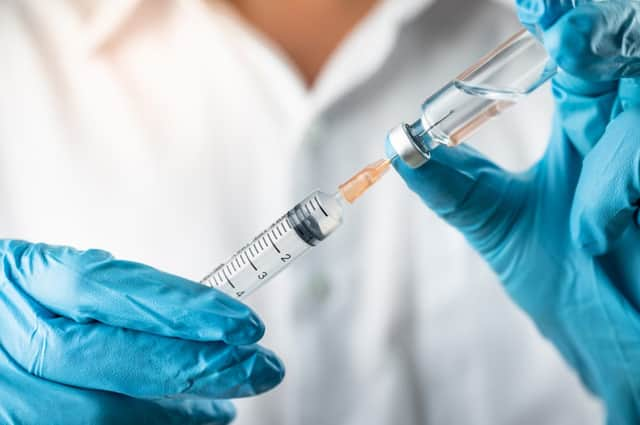Oxford University vaccine trials paused after participant gets 'unexplained illness'


Final clinical trials for a coronavirus vaccine have been put on pause due to a participant suffering from an adverse side-effect.
The vaccine, developed by by AstraZeneca and Oxford University, was in the late stages of testing when the reaction was reported.
Advertisement
Hide AdAdvertisement
Hide AdThe trial has now been put on hold while researchers investigate whether there's a link between the vaccine and the adverse reaction.
AstraZeneca didn't reveal any further details about the nature of the reaction, describing it only as “a potentially unexplained illness”.
Health website Stat News quoted a source saying the participant is likely to recover from the illness.
People around the world have been watching the trials closely, with the AstraZeneca-Oxford University considered a strong contender among the dozens being developed.
Hopes were raised that the vaccine might be first to enter the market after successful testing in phase 1 and 2.
30,000 participants across the UK, US, South Africa and Brazil took part in phase 3 of testing - a phase which often involves thousands of participants and can go on for several years.
Health Secretary Matt Hancock said that the pause doesn't necessarily mean a setback as the researchers have already overcome a similar delay.
He told Sky News: “It is obviously a challenge to this particular vaccine.
Advertisement
Hide AdAdvertisement
Hide Ad“It’s not actually the first time it has happened to the Oxford vaccine and it’s a standard process in clinical trials.”
Asked if it is a setback, Mr Hancock said: “Not necessarily – it depends on what they find when they do the investigation.
“There was a pause earlier in the summer and that was resolved without a problem.”
Stats reported a total of nine vaccine candidates in late stage phase 3 trials, but AstraZeneca’s is the first trial reported to have been put on hold.
While some public figures like US President Donald Trump have said a vaccine will be ready in a mere few months, Oxford University has said a working vaccine might not be available before 2022.